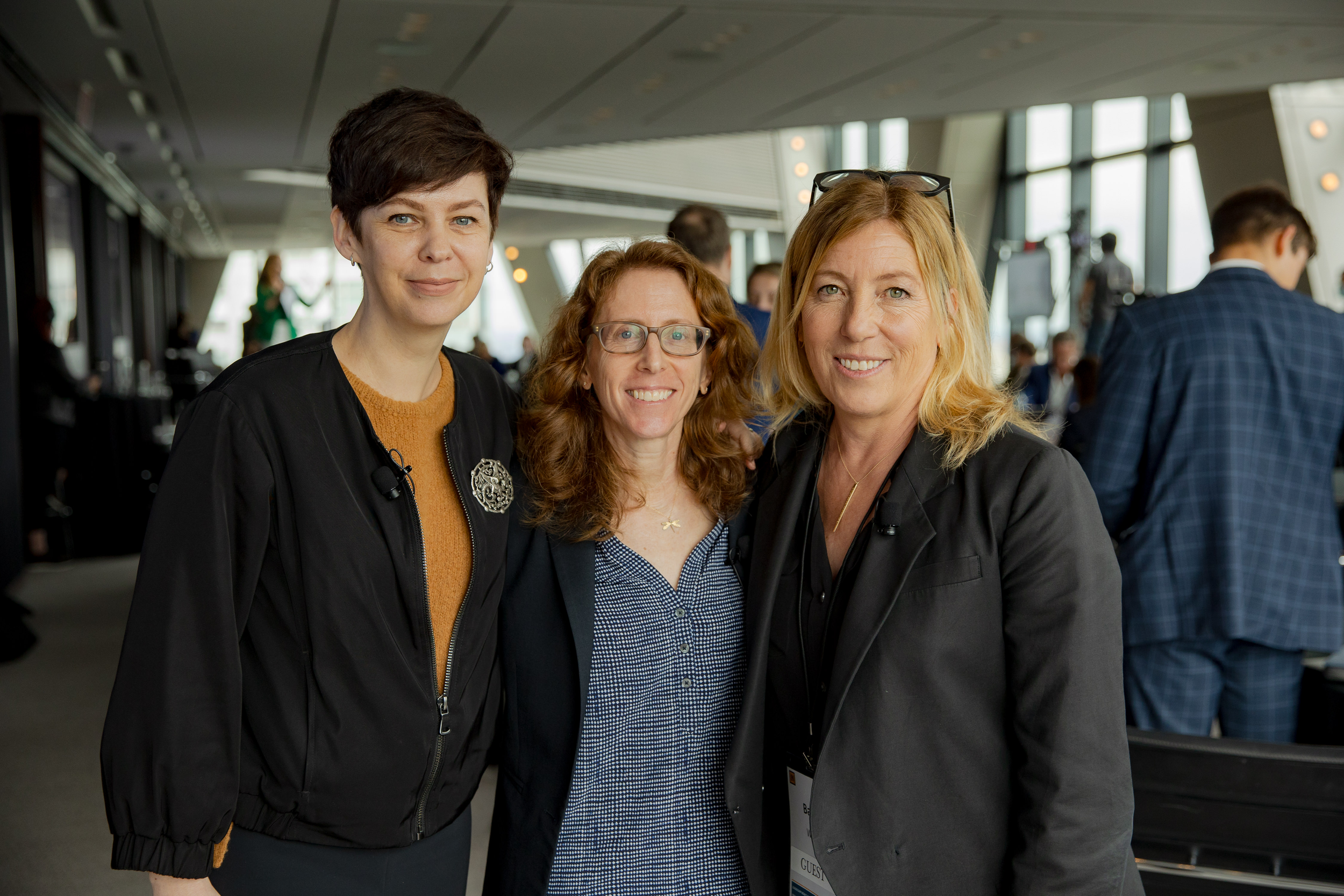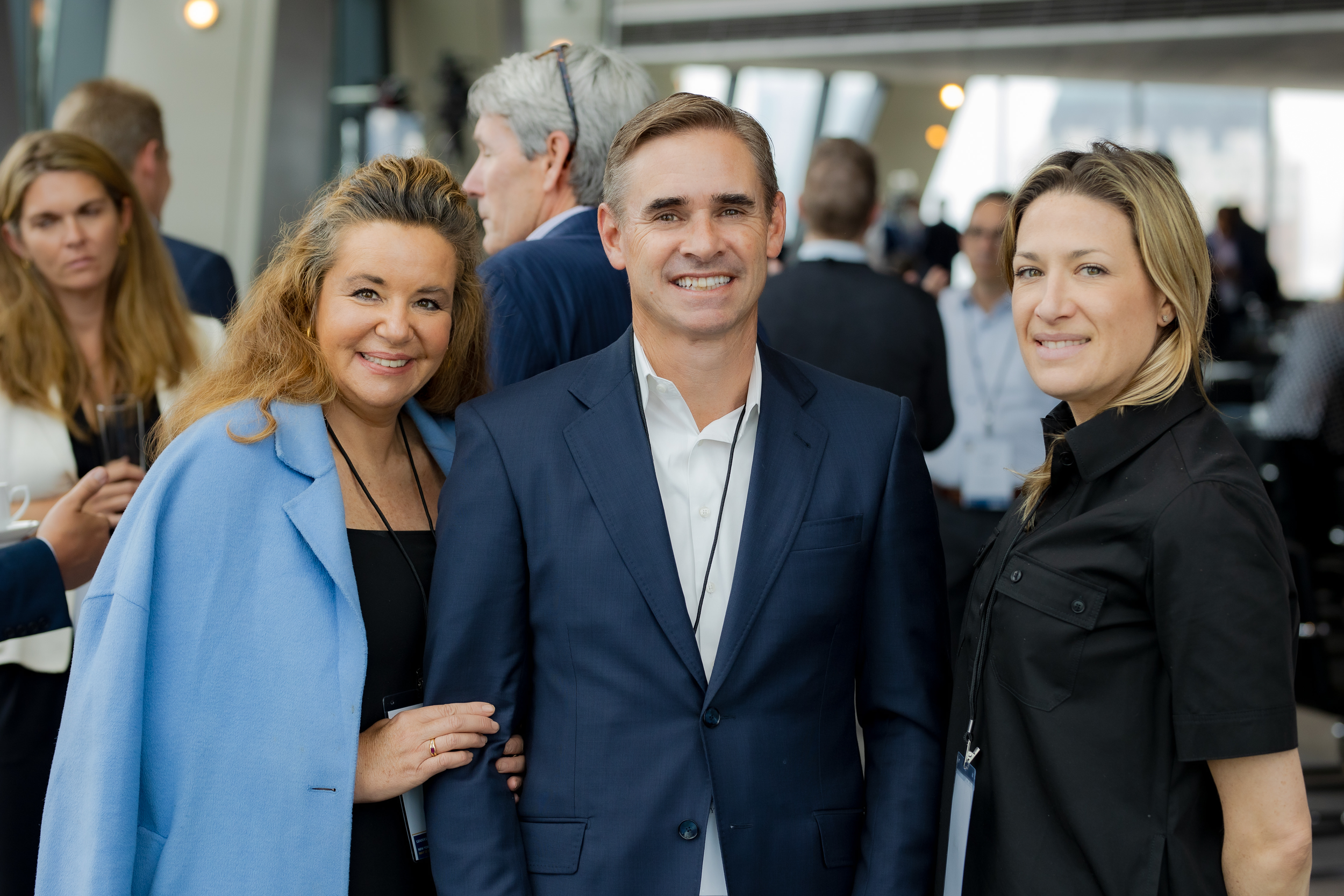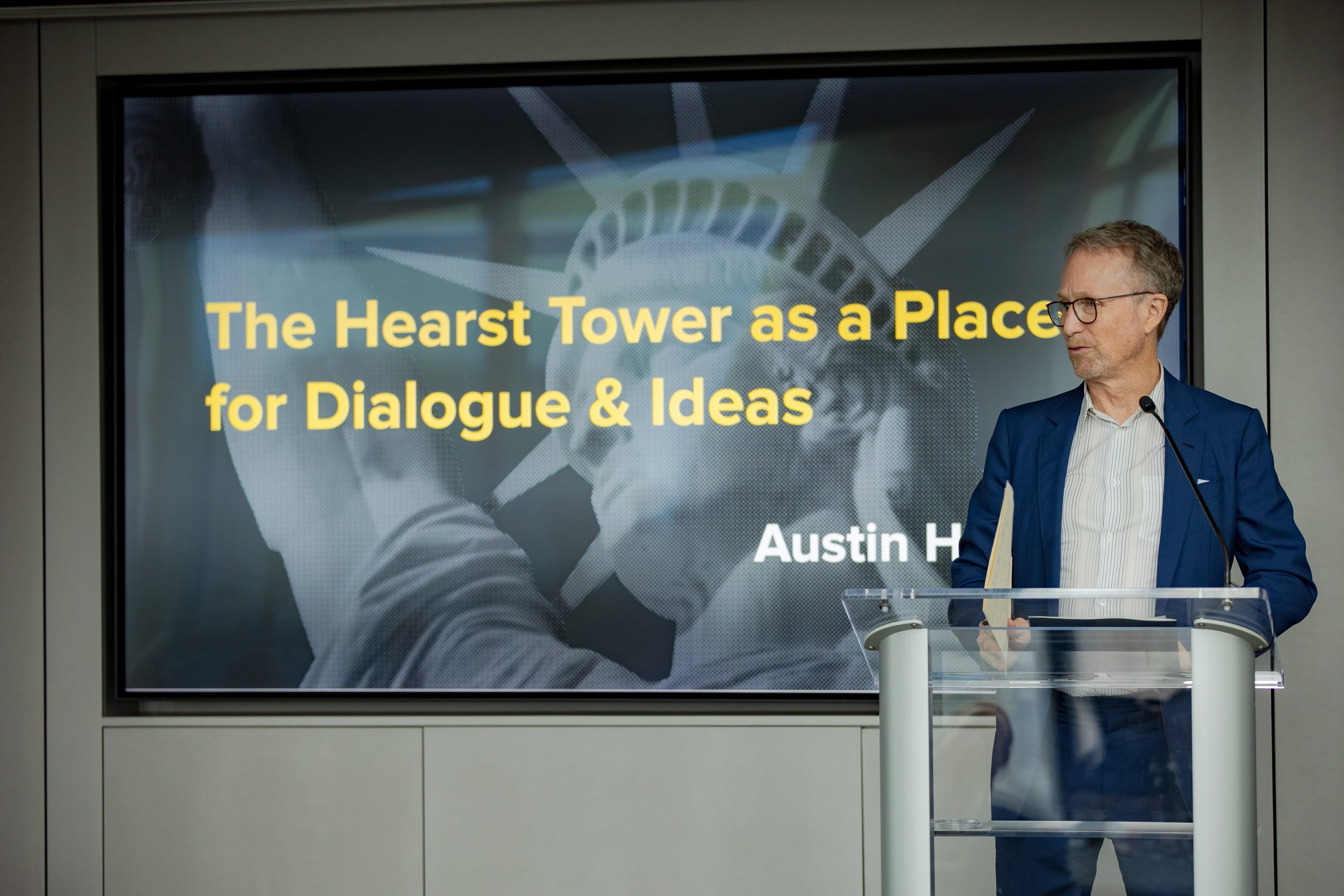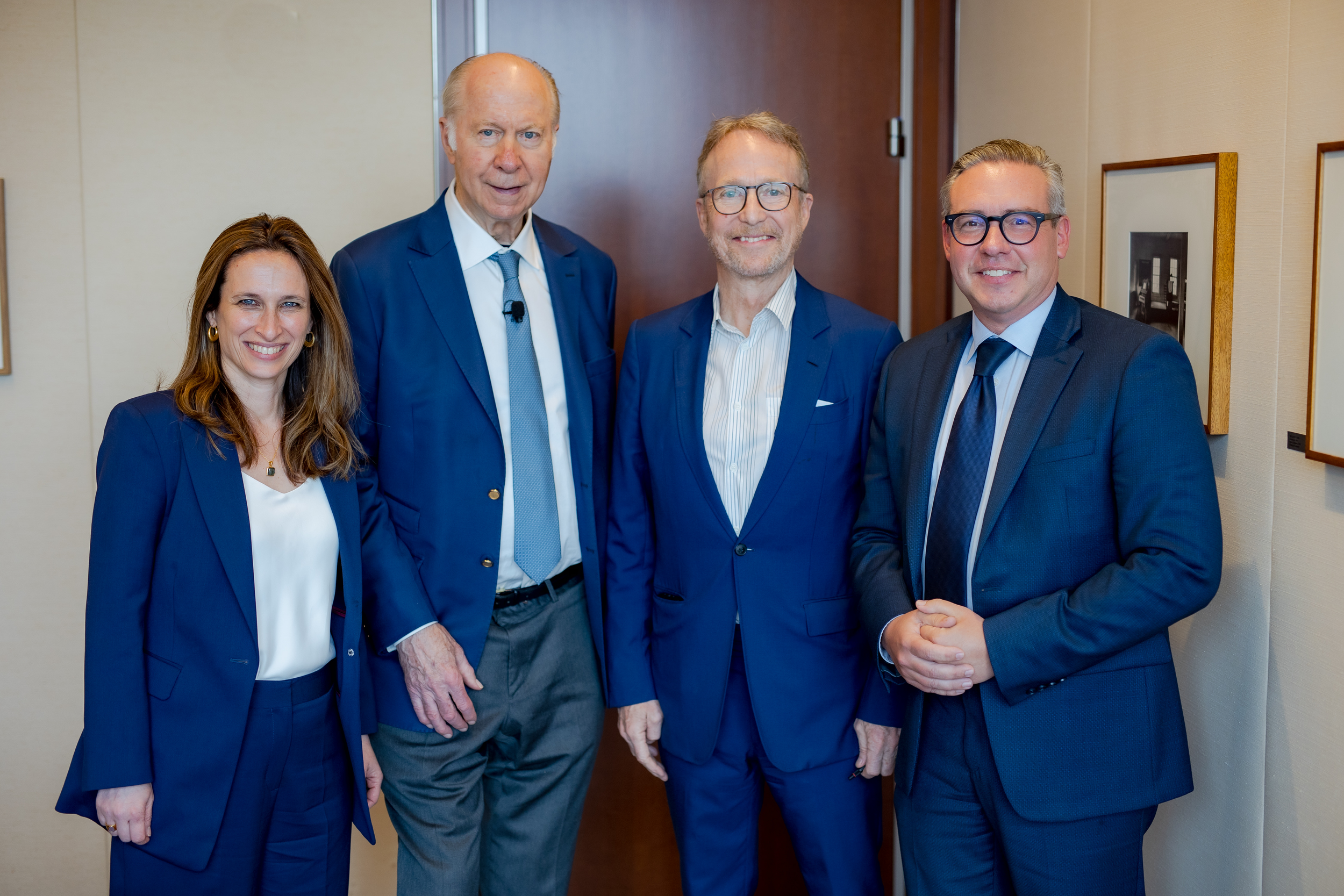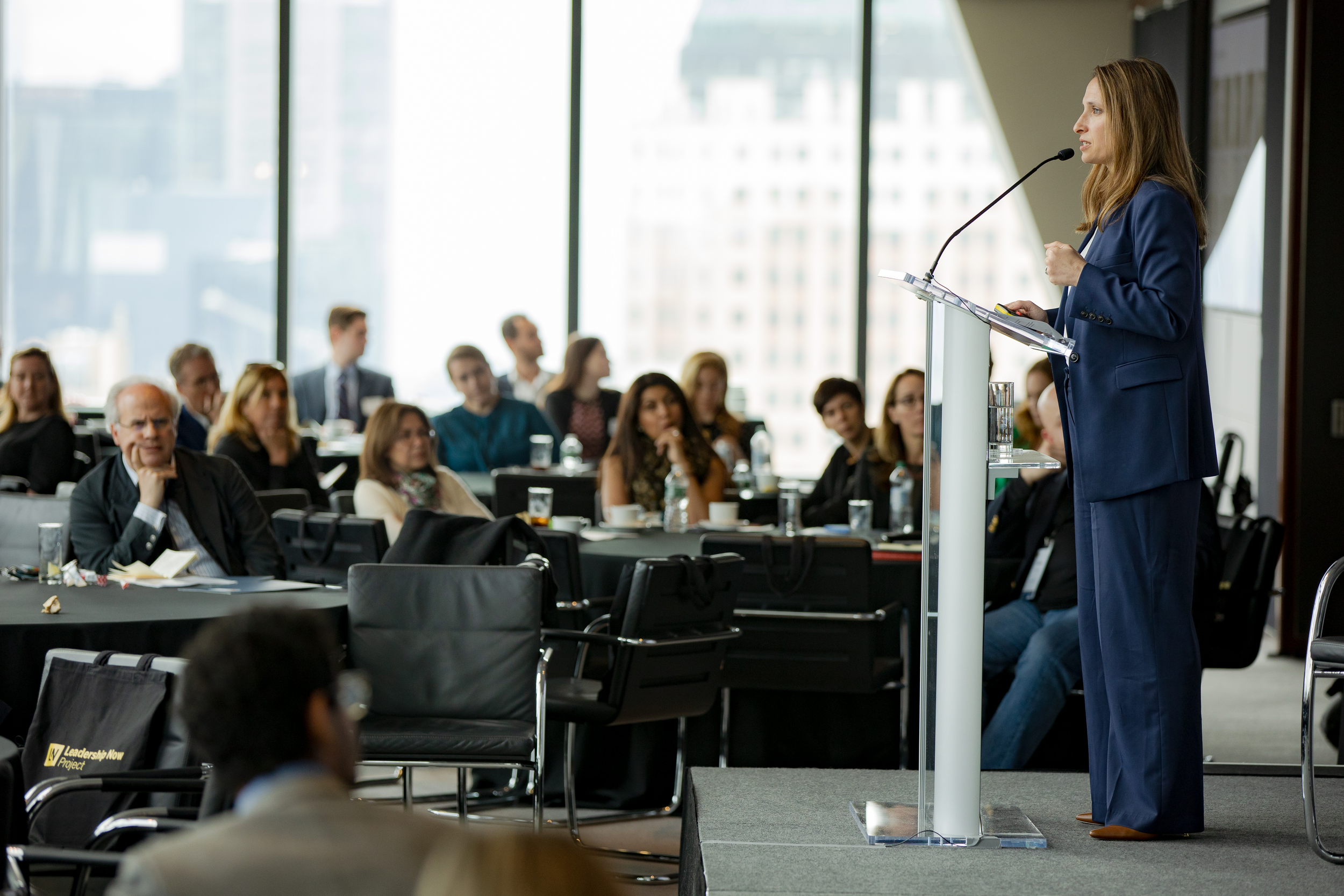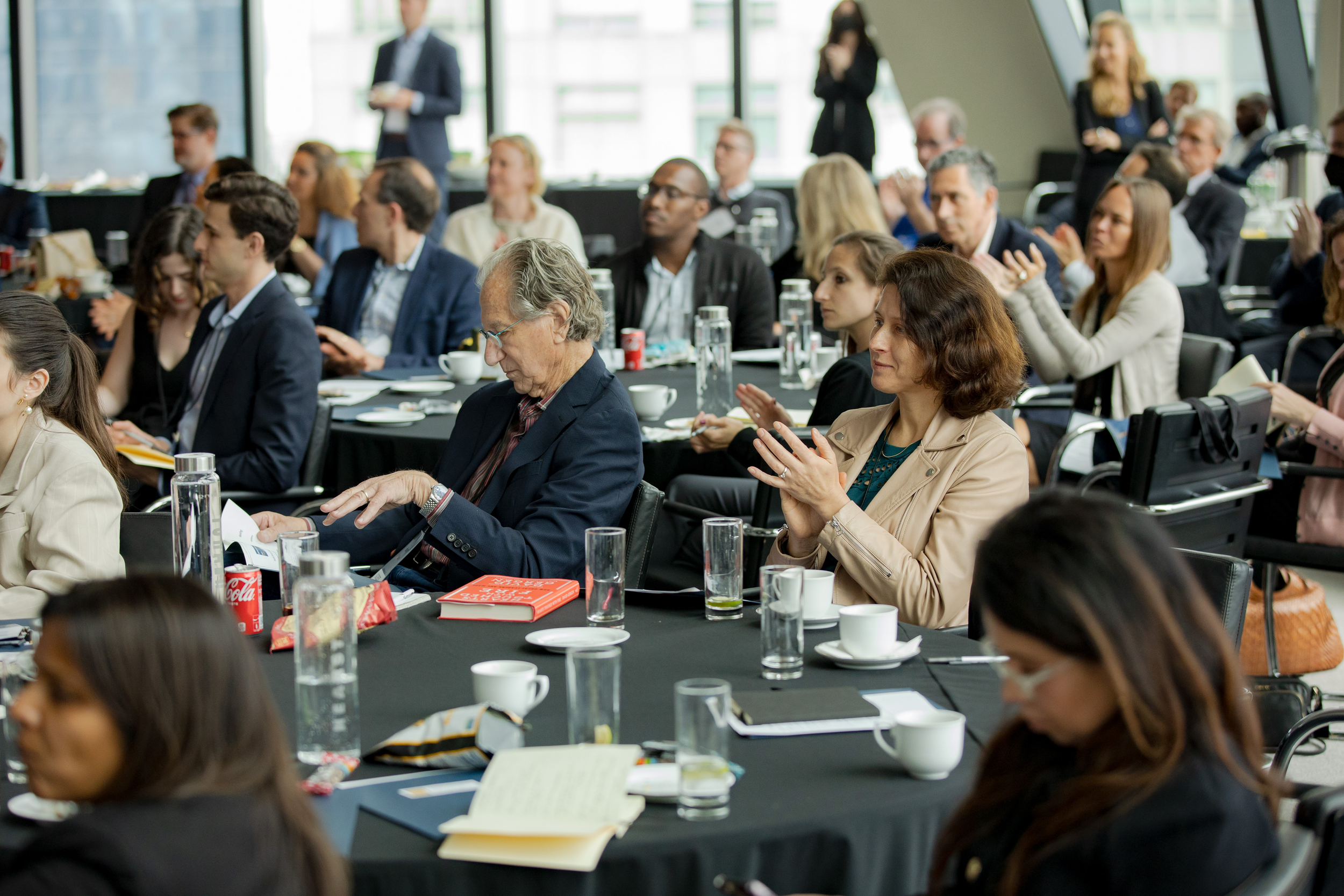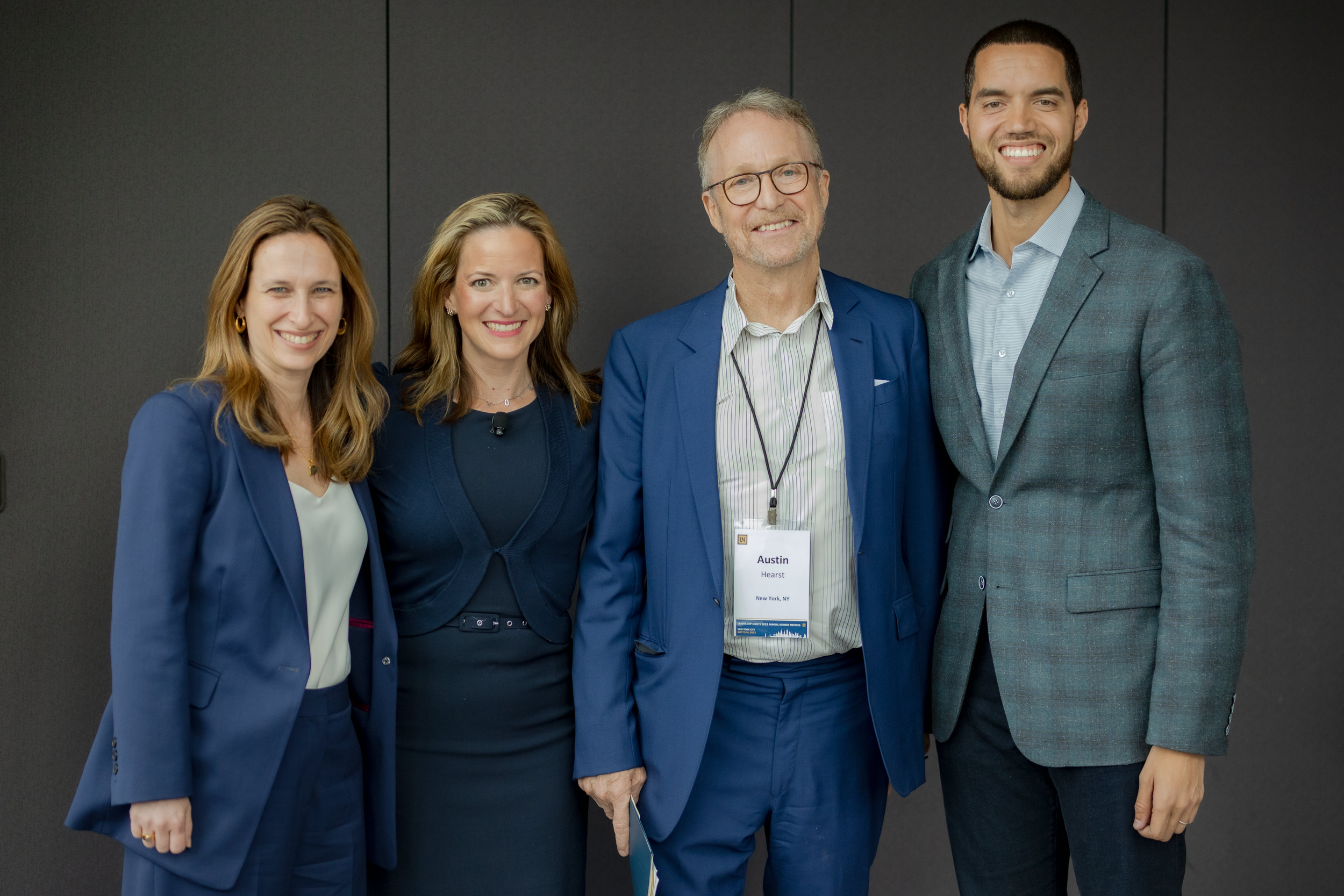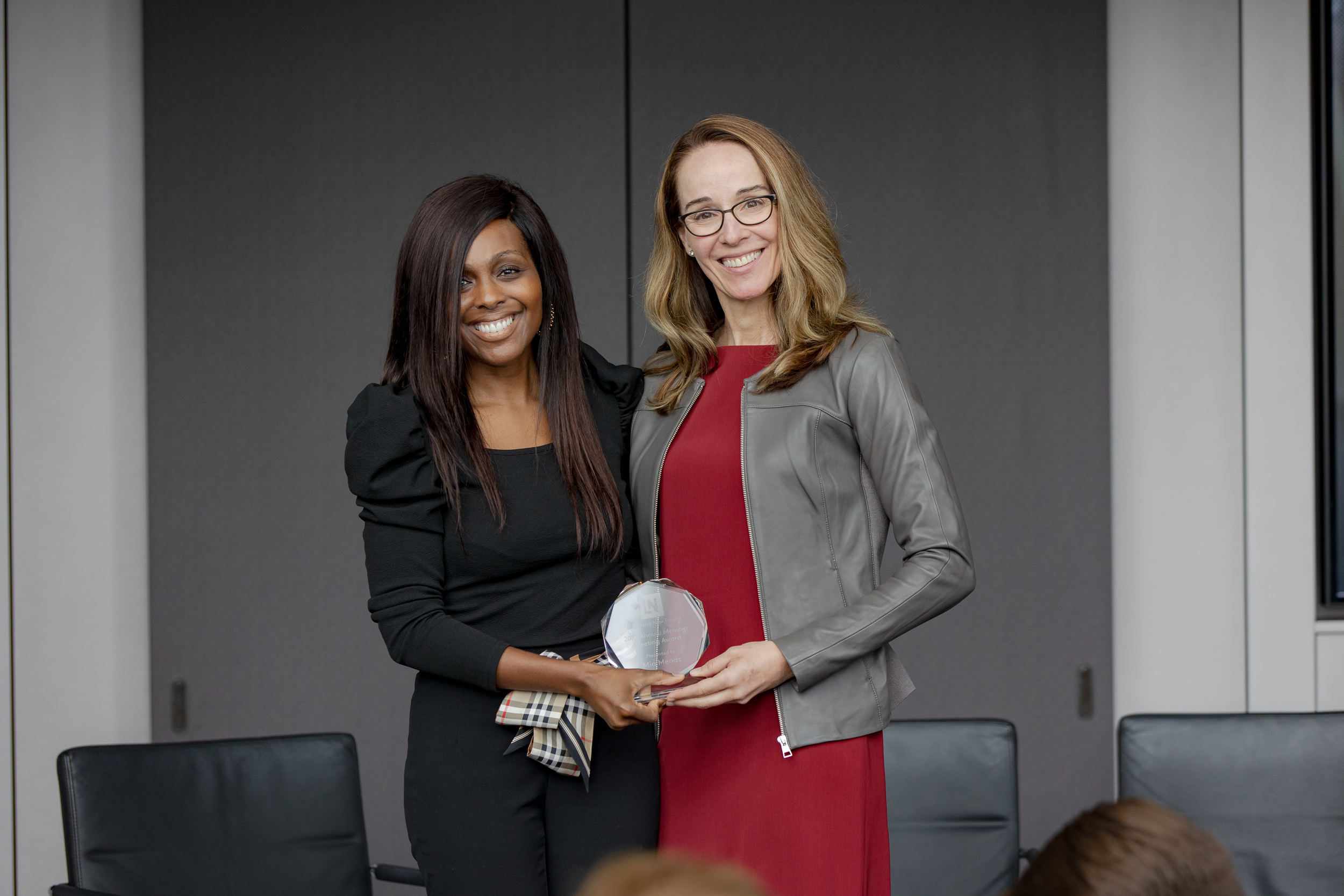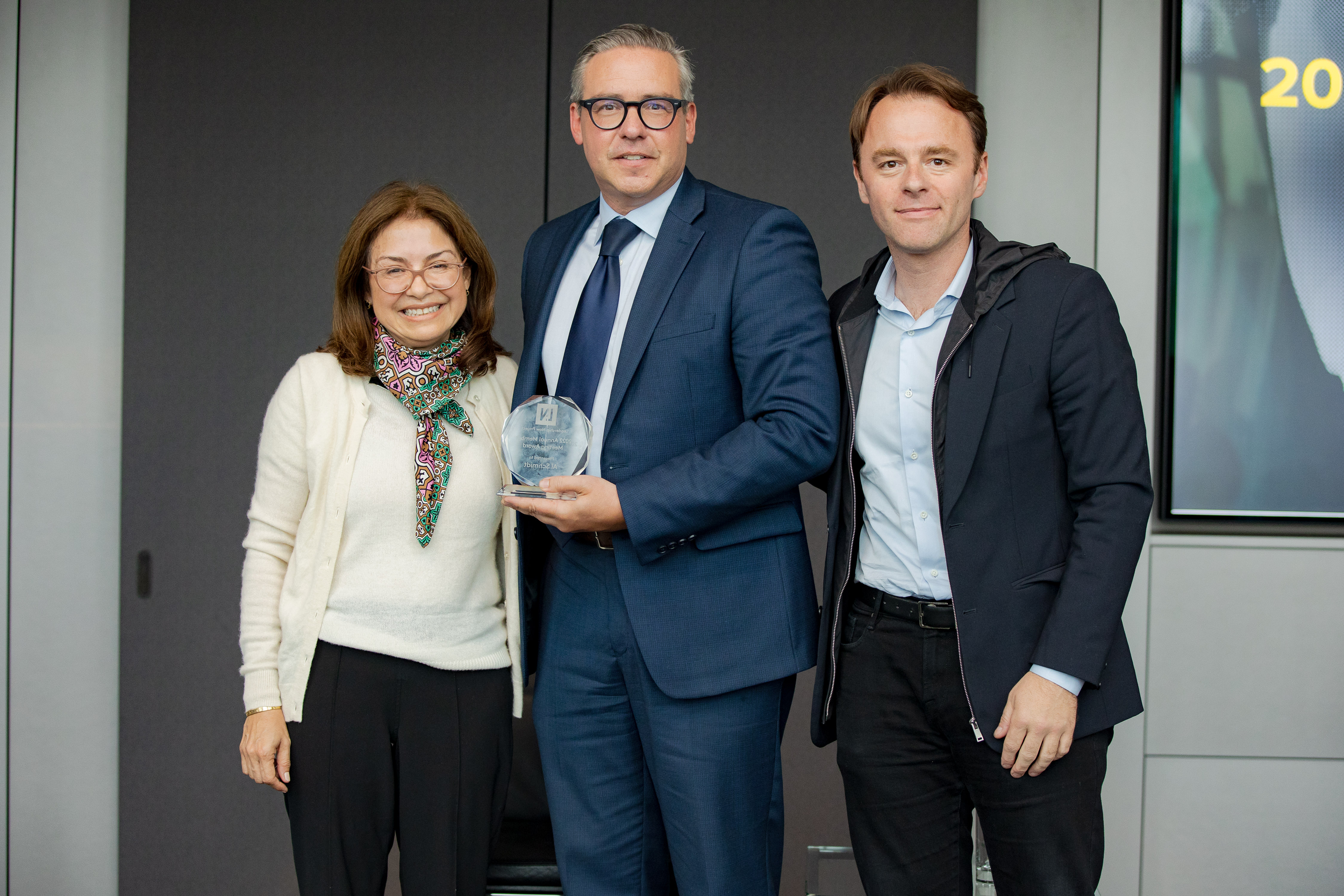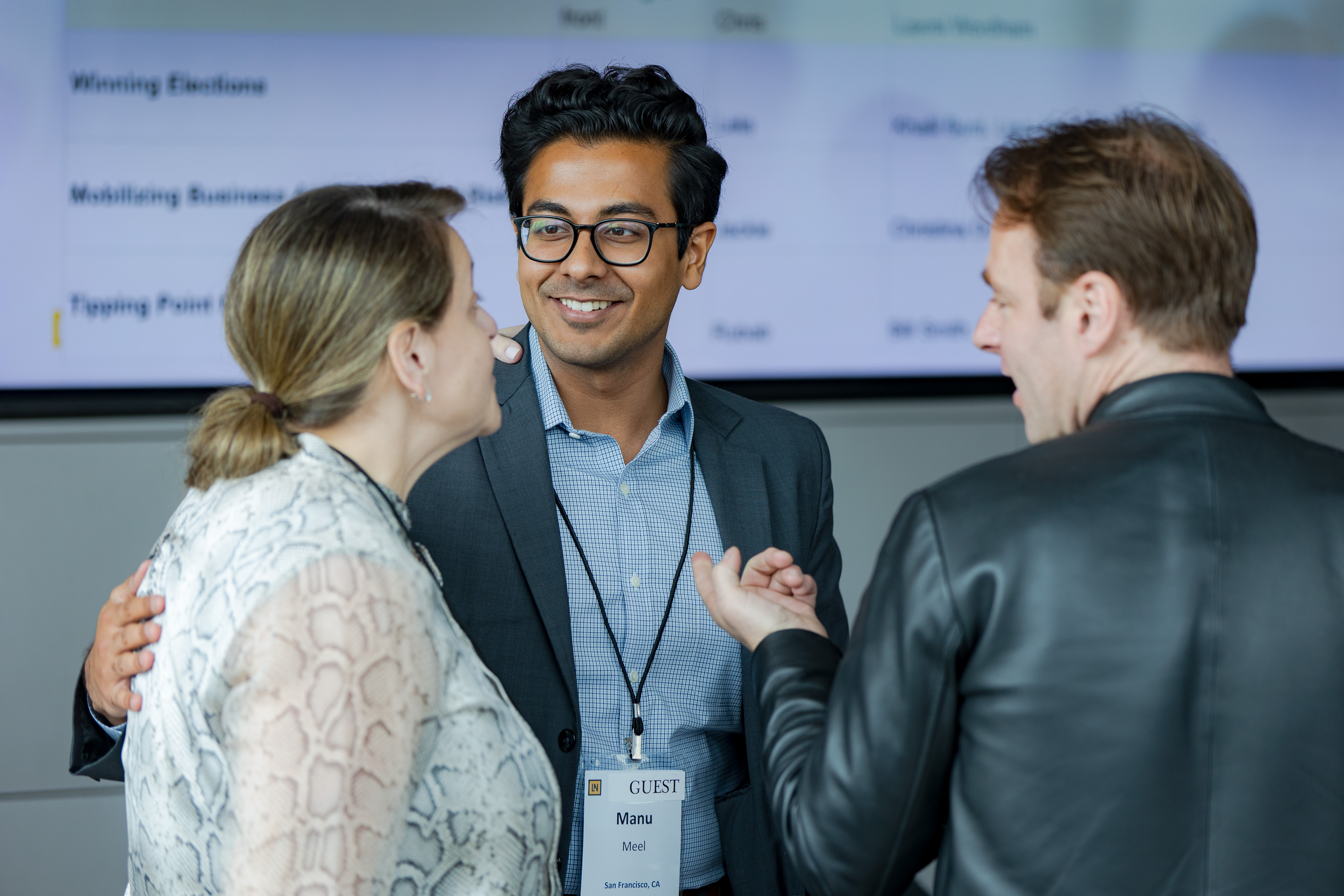LNP Members Strategize on Efforts to Protect & Renew Democracy
In May 2022, dozens of Leadership Now members, partners and elected officials from across the country convened at the Hearst Tower in New York City for the Annual Leadership Now Member Meeting.
Expert Panel Key Takeaways
Corey Hajim (moderator), Barbara Walter, Natalia Kaliada
Democracy in Crisis - Global Trends & the State of America
Across the globe, two things are highly predictive of political violence in states: anocracy, a political state in-between democracy and autocracy, and factionalism, states that have political parties exclusively based on race, ethnicity and religion. With real-life lessons from Russia and Belarus, we can see that American democracy is backsliding because of growing factionalism, leaders who flirt with authoritarianism, and outright disinformation campaigns designed to stoke fear and division in US citizens.
The Role of Corporate Leadership in Stabilizing Democracy
David Clunie (moderator), Katherine Cousins, Mia Mends, Alan Schwartz,
The unstable US political climate is increasingly threatening businesses. There is an increasing need for companies to act on democracy and social issues; however, action is increasingly risky, as politicians are placing companies in the crosshairs. There are concrete actions that companies can take, including: promoting civic engagement; speaking out on meaningful issues; and embracing inclusive capitalism.
Rawi Abdelal
“We cannot go back to how our politics or our economy was organized before the populist backlash, and we shouldn’t want to. It was already broken, we just weren’t paying attention to the ways in which it was breaking. And what that means is we have to rethink everything.
On the Origins of Our Discontent
Speaker: Rawi Abdelal
Populism is on the rise in wealthy countries across the world, driven by factors including globalization and growing inequality. This shift and discontent is leading to a shift away from the political center. The great challenge ahead is reinvigorating the political center, and rethinking our modes of capitalism and politics to restore dignity.
Patrick McGinnis (moderator), Manu Meel, Joel Benenson, Danielle Allen,
Can We Create a 21st Century Narrative that Brings Americans Together?
Historically, in times of high conflict people are hyper-engaged. For example. we saw the largest voter turnout in the 2020 federal elections. However, although there is high engagement, people are more exhausted than ever. Although politicians practice a faux-rigidity attitude toward the U.S constitution, voters are much more open to change. For example, state ballot propositions often pass with a supermajority (e.g., Florida Amendment 4, also known as the Voting Rights Restoration for Felons Initiative, in which the majority of people supported restoring voting rights to people with felony convictions). The rules of the “democracy game” need to elicit empathetic behavior, bridge building, and coalition building. A good example of bridge building is ranked-choice voting which requires candidates to build coalitions when campaigning in order to get more than 50% of the vote.
David Gergen
“The path we’re on now is unsustainable…What's happened now is the extremism has taken hold on both the edges of both parties and the middle is getting more squeezed.”
Hearts Touched with Fire: How Great Leaders are Made
Speaker: David Gergen
Good leadership puts action before titles and rewards, which has been lost in political leaders today. Passing off leadership to the next generation and the innovation of these new leaders are what will ultimately save this country. As a country, we need to find common ground to unify us and leaders should be promoting that unity instead of division.
Kahlil Byrd (moderator), US Rep. Dean Phillips, Max Rose
Broadening the Base of Political Parties - How New Leaders in Congress Can Govern an “Exhausted Majority”
Representatives in Congress should listen to each other and to all constituents - that’s how you begin to get things done. The incentives to collaborate in search of solutions do not often exist. On top of that leadership does not give members from opposing parties a place to get to know one another and foster a spirit of collaboration. We need provide provide a space that allows people from different walks of life to get to know one another and engage with each other with dignity and respect.
RIck Pildes
Can Democracies Deliver Effective Government Again?
When democratic governments consistently fail to deliver on issues that many citizens care most about, it can lead –at a minimum – to anger, disaffection, distrust, alienation, withdrawal among many citizens. Even worse, it can create demands for authoritarian leaders who promise to cut through all of this dysfunction. The communications revolution has helped fuel fragmentation by enabling the rise of “free agent” politicians. Through social media and cable TV, individual members of Congress are able to construct their own kind of national constituency, to have a high-profile that was never before possible, and to raise huge amounts of money through the Internet and social media.
2022 Annual Member Meeting Video
Highlights from 2022 Annual Member Meeting panel sessions









